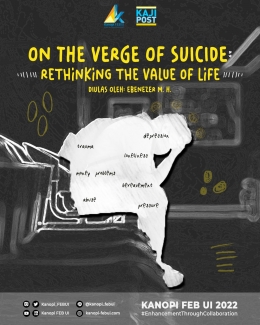"Suicide is not chosen; it happens when pain exceeds resources to cope with pain." quotes Metanoia, an online consulting center that helps people cope with suicidal thoughts. The value of life can be calculated in the same way as we value a company: Calculate all possible values of happiness contained in life, subtract the costs of achieving that happiness, and if the net present enjoyment of life is less than zero, suicide is considered economically rational.
An Elusive Pattern
The riddle of this phenomenon is becoming increasingly difficult to solve---Why do people in the upper-class economy place such a low value on their lives? Isn't it fun for them to be 'rich'? Are they facing too much pressure to manage their wealth or simply because they do not have much more to achieve?
We can apply the concept of opportunity cost---the cost of a choice made over available options. The same applies to the value of life. When individuals from the upper class choose to end their lives, the opportunity costs will be higher because they have to give up all the wealth and coffers of luxuries they have saved so far. On the other hand, in the case of a poor farmer, the opportunity costs may be negligible, even more so if they are heavily in debt.
Humans tend to want more in life. This tendency drives them to value life only when the marginal utility of life continues to increase. When the change of marginal utility decreases or even stops, the value placed on life also begins to decline. In a situation where people are endowed with luxuries but are not satisfied with what they have, it is conceivable that the value they place on life is less than death.
The same will apply to people with low economic levels when the marginal utility of life is low or even negative, and the opportunity cost of living increases. Decreased marginal utility and increased opportunity cost make suicide a more potent option.
A decrease in the relative value of happiness will affect their thoughts. At this stage, it all depends on the mental management of each person. Some go to great lengths to overhaul the situation and move on with life choices, while others are overwhelmed by the situation. Their mental state determines the outcome.
Not Always Unstoppable
People end their own lives for various reasons. Since we are not in their position, we cannot judge their decision. However, just as every individual can be a change agent---talking, listening, and helping people through difficult times can help them.
Back to Hyung's story on the Han River, he and his team succeed in thwarting 70% of the suicides there. Every day they patrol to monitor those who want to end their lives. Other preventive measures include installing CCTV, hotlines, and emergency alarms.
There are short phrases uttered along the sidewalks of the river bridge---as simple as "How are you?" or "You have done the best!" but that means a lot if we are in their position. Perhaps it can prevent them from making the irreversible choice to end their lives. In a confused state of mind, when they are trying to weigh the value they place on life and the decision to leave the world, the presence of those closest can help to convince them that all human beings are valuable and deserve to continue life.
By Ebenezer Mesotuho Harefa | Ilmu Ekonomi 2021 | Staff Divisi Kajian Kanopi FEB UI 2022
Bibliography
Bauer, B. W., & Capron, D. W. (2019). How behavioral economics and nudges could help diminish irrationality in suicide-related decisions. Perspectives on Psychological Science, 15(1), 44--61. https://doi.org/10.1177/1745691619866463







